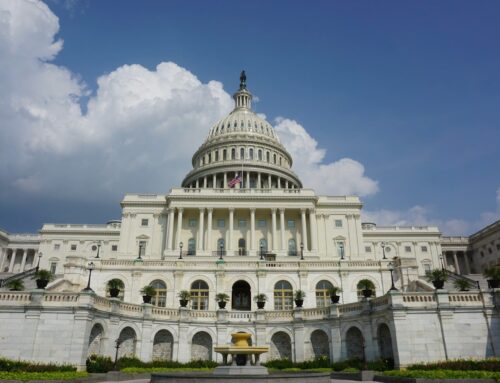March Madness has descended on the country. But we’re not talking about the NCAA’s men’s and women’s basketball tournaments. It’s budget season in DC. And while the round-by-round tussle of the federal budget process has always had its ups and downs, this year is especially maddening. Fortunately for taxpayers it doesn’t have to be this way if lawmakers would bring their A-game to the budget process tourney.
Under a “regular order” process, March can be a wild budgetary month. After the President shoots their budget request over to the Capitol the first week of February, House and Senate committees start holding oversight hearings. Secretaries from each agency suit up for a full court press from the opposition while working a spending zone defense with members of their party. Shortly after each chamber takes a shot at their version of the Budget Resolution, agreeing on a final game plan that sets the top-line spending for the defense and non-defense spending brackets. By late March the spending team captains, the appropriations committees, should be on their way to executing a plan to distribute the funds amongst the various agencies funded by the twelve spending bills that constitute the annual budget.
We aren’t anywhere close to regular order.
Almost six months into Fiscal Year 2024, lawmakers are still tussling over the current budget. Lawmakers stuck in the 2024 budget battle are nowhere close to ready for tipoff on the Fiscal Year 2025 spending round. The House Budget Committee did adopt its 2025 game plan. But doing so with the clock still running on 2024 and with the Senate Budget Committee not even taking the court, means they’ll likely have to go back to the drawing board in the coming months.
What’s maddening is it doesn’t have to be this way. The 2024 spending tourney should have been over months ago. The spending top lines for 2024 AND 2025 were agreed to nine months ago as part of the Fiscal Responsibility Act. Yet 2024 has now gone to quadruple overtime (4 continuing resolutions). The players haven’t changed. The venue is the same. Finishing 2024 should have been a slam dunk. Nine months of desperation heaves and intentional fouls have had no appreciable impact on the final spending outcome.
There are real consequences to Congress’s poor execution. With text of the $1.2 trillion Further Consolidated Appropriations Act released in the wee hours Thursday, there isn’t time to get the bill through the rim without some form of violation. The House voting before the buzzer hits zero at midnight Friday means Speaker Johnson commits a flagrant foul against the House rule requiring 72 hours for inspection of legislation. If the Senate uses its full shot clock instead of a hurry-up offense, the government enters a partial shutdown. Either is an unforced turnover that could have been avoided.
Extending the 2024 budget debate also jeopardizes Congress’s prospects of properly executing in 2025. It’s tough to come up with an effective game plan for tackling the nation’s needs if you don’t have final tape on last year’s performance. And even before moving to 2025 spending Congress will have to navigate a $95 billion emergency supplemental; which would grow in cost if it includes border funding. A failed budget process means lawmakers are likely to sub in unbudgeted emergency spending to address real needs and as a backdoor for items that could be budgeted in a normal process.
Congress has to play better. The annual budget process has become a sloppy, unwatchable affair. Legislating is a team game. All 535 members tried out for the team. It’s time they bench any ball hogging self-proclaimed superstars and start working as a team for taxpayers. If there’s one Cinderella that needs to rise this year, it’s team common sense.











Get Social